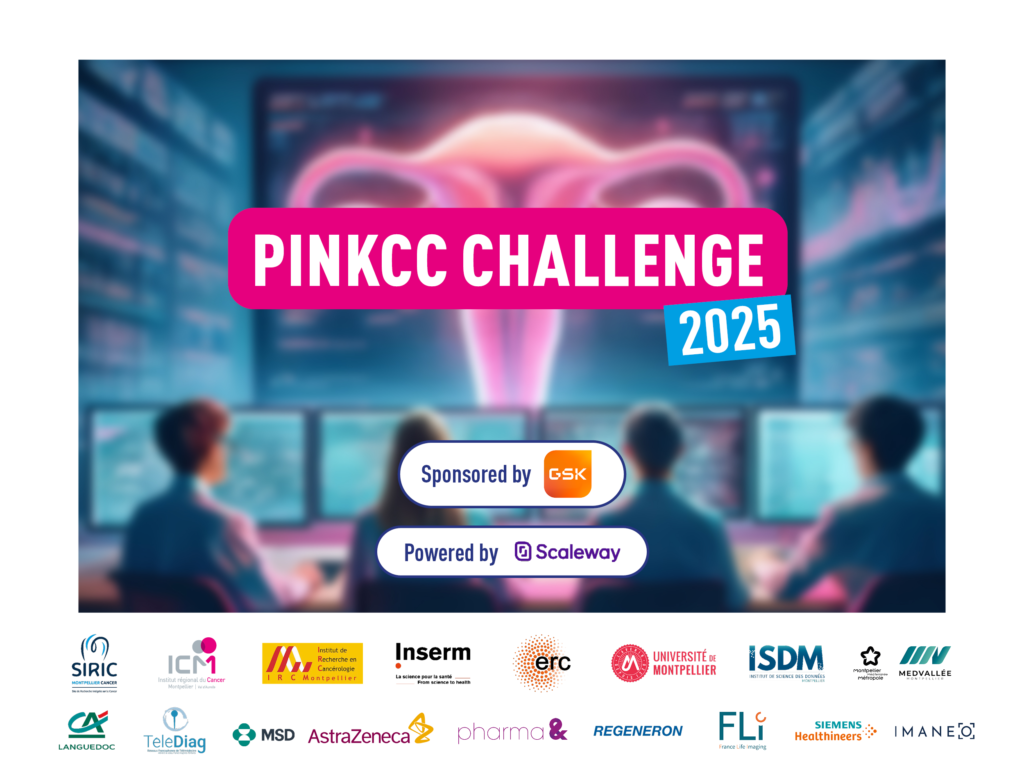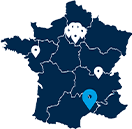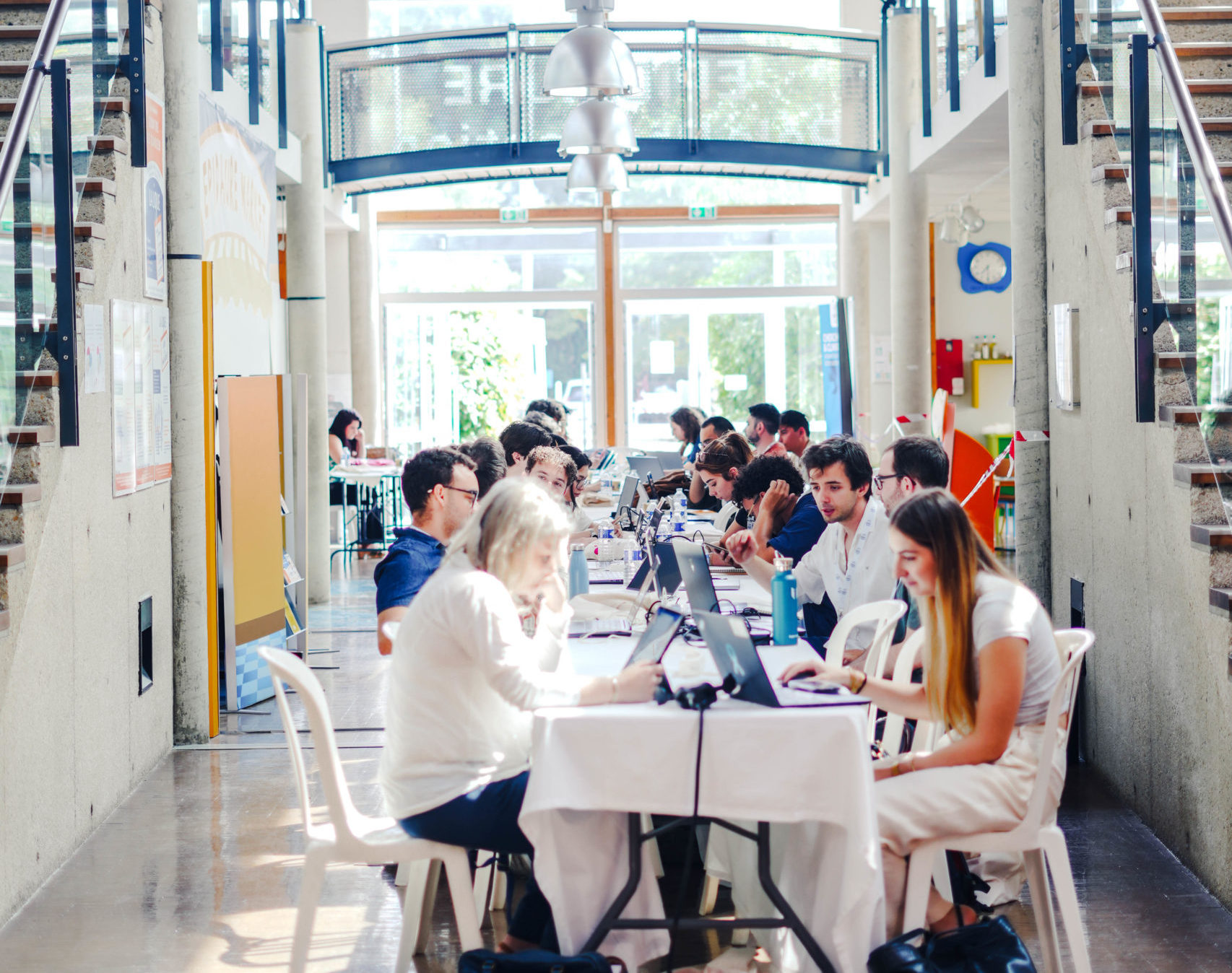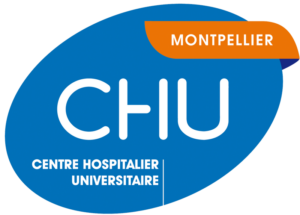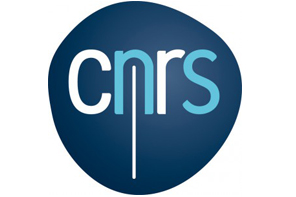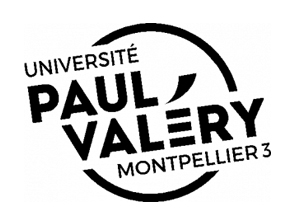The PINKCC Challenge 2025, held in Montpellier, brought together AI and medical imaging to advance ovarian cancer research
On June 13, 2025, Montpellier hosted the grand finale of the PINKCC Challenge, a unique scientific competition combining artificial intelligence, medical imaging, and data science. Over two months, 250 participants from around the world worked to develop algorithms capable of detecting and segmenting complex ovarian cancers. This event could very well transform the medicine of tomorrow.
An initiative led by the Montpellier Cancer Institute and the SIRIC Montpellier Cancer
Launched on April 1, 2025, the PINKCC Challenge is an international scientific competition organized by SIRIC Montpellier Cancer and the Montpellier Cancer Institute (ICM), under the leadership of Professor Stéphanie Nougaret, a radiologist specialized in AI and head of the PINKCC research laboratory at IRCM.
Objective: Detecting ovarian cancer using AI
The challenge was to develop an automatic segmentation algorithm to identify ovarian cancer with peritoneal carcinomatosis from medical images. This is a crucial advancement to refine the evaluation of tumor extension and improve patient care.
An exceptional scientific mobilization around AI and health
Over 250 participants, 30% international
The challenge brought together 250 participants from prestigious schools, hospitals, and laboratories specializing in artificial intelligence applied to medical imaging. Participants came from Taiwan, Colombia, France, Switzerland, and Austria, including talents from École des Ponts, ENS, Mines Alès, Sorbonne University, the University of Montpellier, EPITA, Epitech Montpellier, and hospitals in Lyon, Clermont-Ferrand, Saint-Étienne, AP-HP, and ICM.
The competition utilized exceptional computational resources:
- The Meso-LR platform, developed by the team of Professor Anne Laurent (University of Montpellier / ISDM),
- Scaleway‘s cloud infrastructures, a European provider and subsidiary of Iliad,
- as well as the computing power provided by NVIDIA.
These resources enabled the efficient management of large and complex anonymized clinical datasets, essential for developing cutting-edge algorithms in medical AI.
Insights from Participants
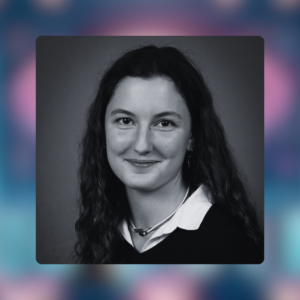 For a very long time I have been passionate about medicine, and when I oriented my studies towards Computer Science and Vision, I was thrilled to see it had so many applications in this field. Unfortunately, my school program doesn’t offer any course health related, so I thought I was going to have to wait on a dream internship to be able to explore this field. Until the PINKCC Challenge appeared! It was our school which shared this challenge, and my teammates and I were very excited to see how easy it was to participate, even as undergraduates. Therefore, I would say my main motivation was the opportunity to apply what I had learned during two years at my engineering school to a concrete health topic, and such a modern one too.
Like mentioned in the previous question, it represents the opportunity to explore a field which I found very appealing, and I think it is a challenge which presents a very concrete idea of what I could be doing in the future, especially if I wanted to pursue a career in research. In addition, it is definitely a hands-on experience which I can put forwards during interviews, as we have to handle huge datasets, explore by ourselves, organize our work, and try to produce results with a deadline.
Unfortunately, the Challenge actually took place during a period where I had a lot of work at my school, and therefore I did not get the chance to invest myself as much as I would’ve wanted. However, I will remember how important communication and sharing information is between teammates (every member doesn’t have to do everything from scratch, we can also use what the others have already done), as well as organizing our time with regular deadlines and updates, and finally how important data analysis and preparation has an important place in a machine learning project. |
- What motivated you to join the PINKCC Challenge?
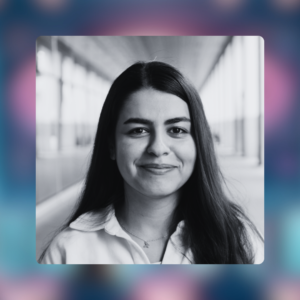
PhD Student at EPFL (Switzerland)
This challenge felt like a great opportunity to bring together my background in imaging and machine learning to address a real-world problem. The mission of improving cancer treatment was very motivating to me.
- How does this challenge align with your future goals?
I aim to become a machine learning researcher who works on real-world problems — and this experience was a perfect fit. It pushed me slightly outside my usual research on image reconstruction and gave me the chance to work in a more applied and collaborative setting, which I really enjoyed.
- What did you learn through this experience?
Our weekly meetings gave me insight into new tools and techniques, and I appreciated the strong sense of teamwork — it was rewarding to build something together. I also got hands-on experience with cloud platforms like Scaleway. Overall, this challenge gave me a fresh perspective on how my skills can be applied in practice, and I’m really glad I took part.

Data Scientist
(France)
- How does this challenge allow you to combine science and human commitment?
The PINKCC Challenge integrates cutting-edge technologies such as medical imaging and the latest AI models for healthcare, combined with the indispensable human expertise of radiologists and volunteer data experts, all driven together with the goal of having a positive impact on health and patient care.
I decided to engage in this challenge because it provided an opportunity to apply my newly acquired knowledge in data science in a real-world context, but above all because it resonates with my personal values of contributing to healthcare advancements and supporting initiatives that can bring about real change.
I have already learned a lot in the last few weeks, and I greatly appreciated the exchanges with other participants (special thanks to my teamates from Data4Hope!), organizing team and sponsors. These interactions have added value to the experience and provided different perspectives on tackling the challenges presented.

Research Engineer at SIRIC Curamus/AP-HP
(France)
- Why do you think it is important to foster collaboration between AI and medicine?
To me, artificial intelligence is a powerful tool that can bring significant improvements to the medical field:
- By assisting doctors in their daily work, for example through the analysis of patient records or the precise detection of diseases.
- By helping to better characterize illnesses and their underlying mechanisms, making it possible to improve diagnosis and treatment.
- By personalizing care pathways according to each individual’s specific situation and medical conditions.
In my view, AI is essential to advancing the fight against disease, enhancing medical research, and improving the patient journey by offering a new way of analyzing available data.
That’s why I believe it’s crucial to foster collaboration between artificial intelligence and medicine.

Computer Science Student at EPITA
(France)
- Why did you choose to apply your computer science skills to a health-related challenge like the PINKCC Challenge?
It’s a practical application of the theoretical knowledge I’ve acquired in class, focused on a real, urgent, and meaningful issue — one that has the potential to save lives.
- What motivated you to take part in this challenge?
Ovarian cancer is one of the deadliest cancers, mainly because it’s often diagnosed too late. Contributing to the development of tools that could improve early detection is, in my view, one of the most impactful ways to make a difference

Engineer Student at Ecole Nationale des Ponts et Chaussées
(France)
- What motivated you to join the PINKCC Challenge?
I had the opportunity to do an internship as a Data Analyst at Implicity, a start-up specializing in pacemakers.
They help with remote monitoring and risk prediction using artificial intelligence. I really enjoyed this internship because it helped me realize what I want to do in the future: apply AI to medicine. I felt like I was doing something truly meaningful. When I came across this challenge, I thought it was an amazing opportunity to get started!
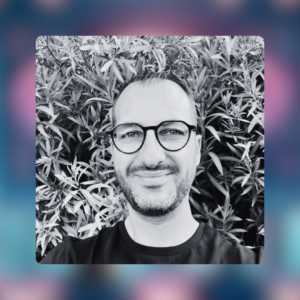
Data Scientist & PhD Candidate at University of Namur
(Belgium)
- What motivated you to join the PINKCC Challenge?
I was immediately drawn to the Pinkcc Challenge for its real-world impact and alignment with my research (anomaly detection in industrial and medical applications). This challenge offers the chance to apply my research to a critical, underfunded area where impact matters.
I strongly believe that as researchers, we should dedicate more of our expertise and energy to socially impactful problems. Finally, I appreciate the values of the challenge itself: a committed team, a well-organized initiative, and the chance to collaborate with others. Research can often feel solitary, so working as part of a team toward a meaningful common goal is both motivating and refreshing.
- Which technical aspect of the challenge did you find the most engaging?
The most exciting technical challenge for me lies in building models that are not just performant but trustworthy — especially when data is scarce, noisy, or heterogeneous. In the medical context, segmentation models must be both accurate and explainable, with a clear awareness of their own limits. This is very close to the core of my PhD, where I focus on generative approaches that incorporate quality constraints and uncertainty estimation.
I’m also particularly interested in designing approaches that are efficient, reliable, and interpretable. It’s a valuable contrast to the current trend of large, energy-hungry models with limited control. Challenges like this show that AI can be powerful and responsible when applied thoughtfully.
An International Finale in Montpellier
The morning was dedicated to a series of high-level conferences focused on oncological imaging and AI:
- Dr. Jonathan Dong (EPFL, Switzerland): “Image Reconstruction: From Physical Models to Machine Learning“
- Dr. Christopher Bridge (Harvard Medical School, USA): “Deep Learning for Cancer Imaging Biomarkers“
- Professor Ramona Woitek (Danube Private University, Austria): “AI in Ovarian Cancer Imaging Targeted to Clinical Needs“
Following the presentations, a roundtable discussion titled “AI & Oncology Research: Synergies for Innovation” brought together:
👉 Professor Stéphanie Nougaret (ICM)
👉 Régis Dioulo (NVIDIA)
👉 Michael Chekroun (MedVallée)
👉 Caroline Jeandel (GSK France)
This roundtable was a highlight, emphasizing the synergies between academic research, industrial innovation, and clinical needs.
Initiatives like the PINKCC challenge are really important to spur innovation around important challenges and establish strong, open benchmarks for the scientific community. But, even more importantly, they show a new generation of AI developers that AI can be used to address challenges that really make a difference to people’s lives. Dr Christopher Bridge – Harvard Medical School
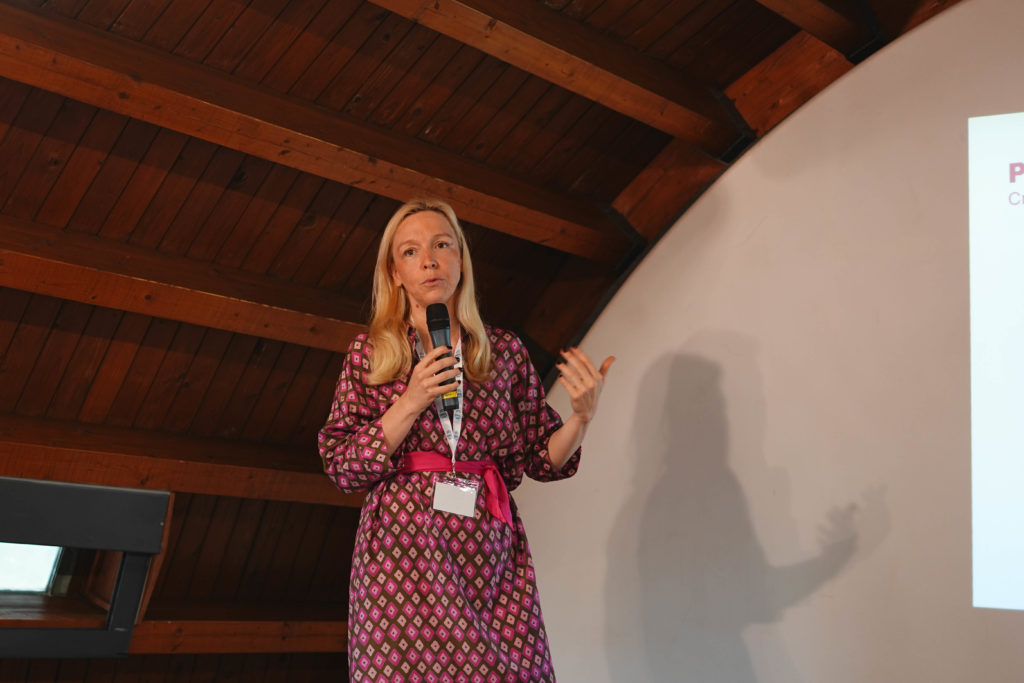
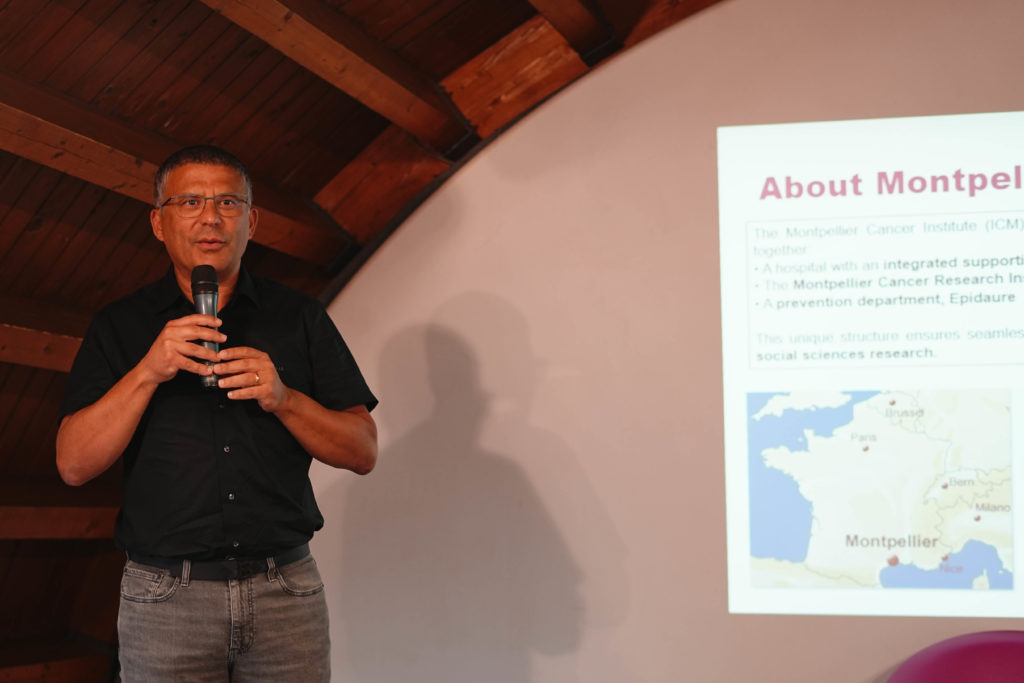
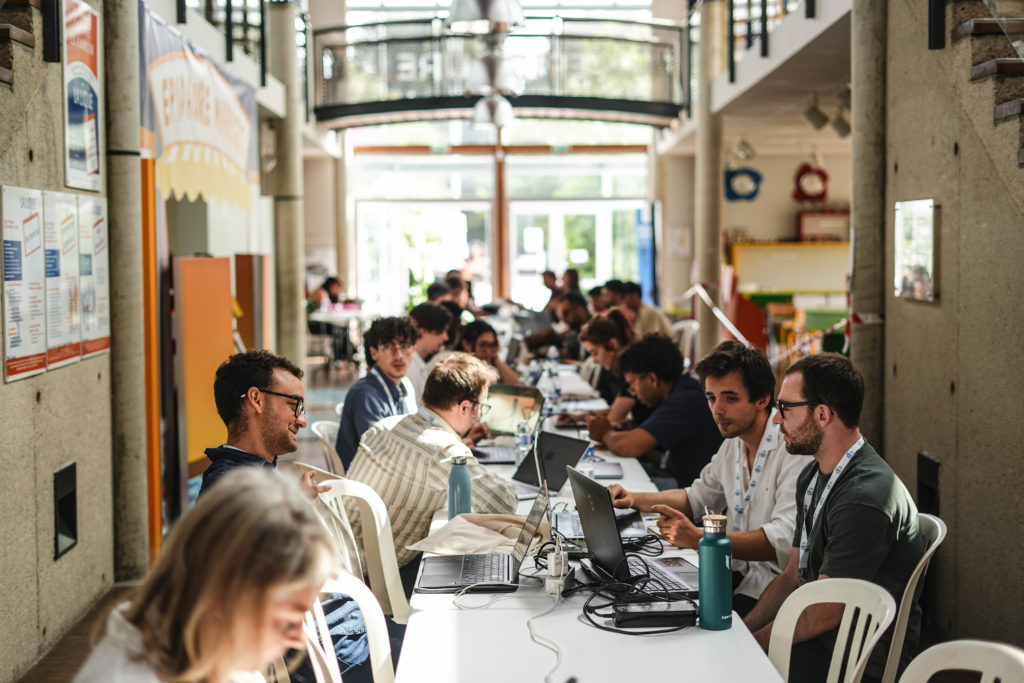
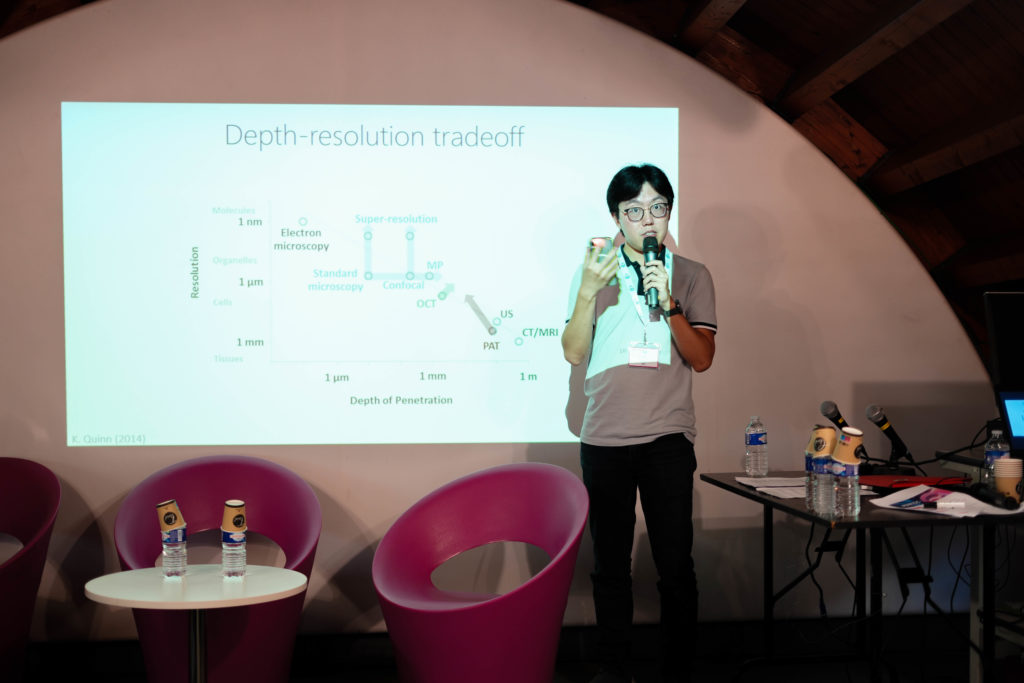
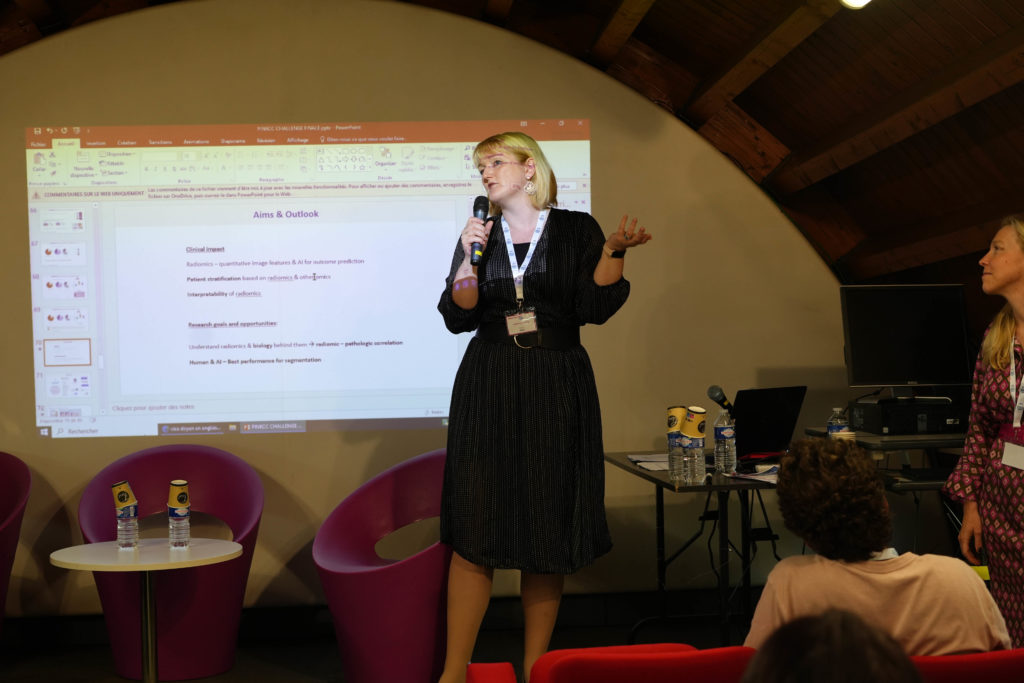
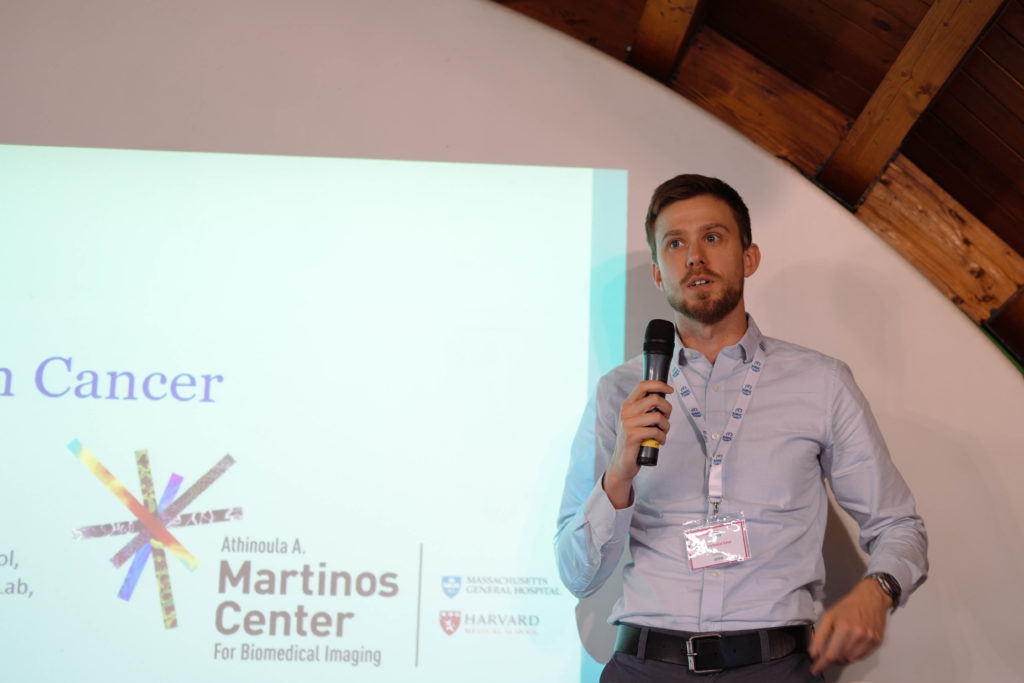
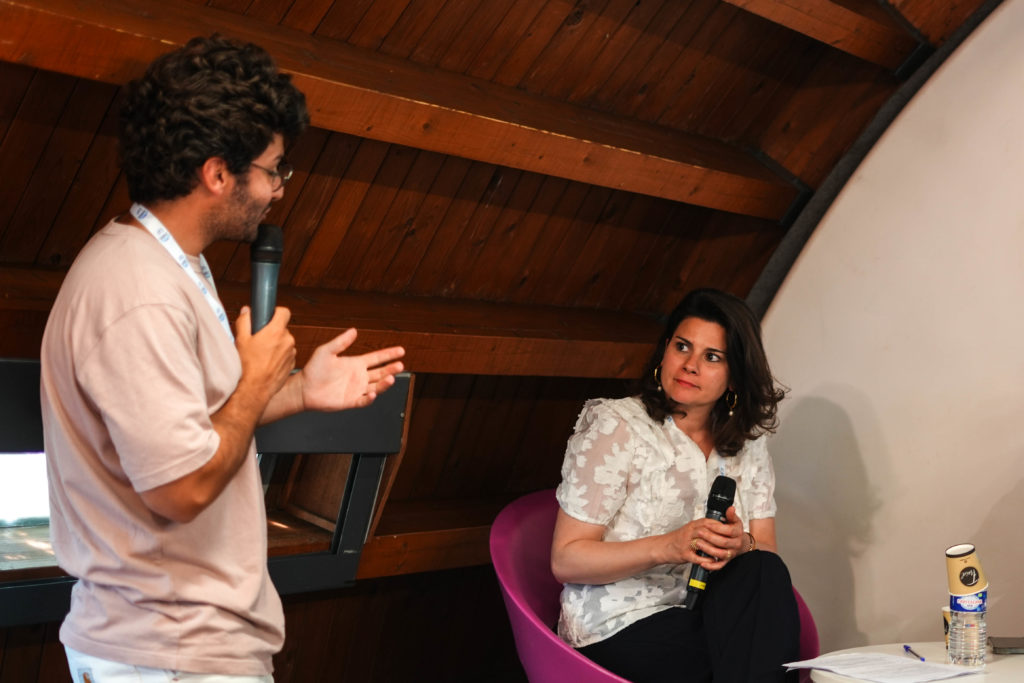
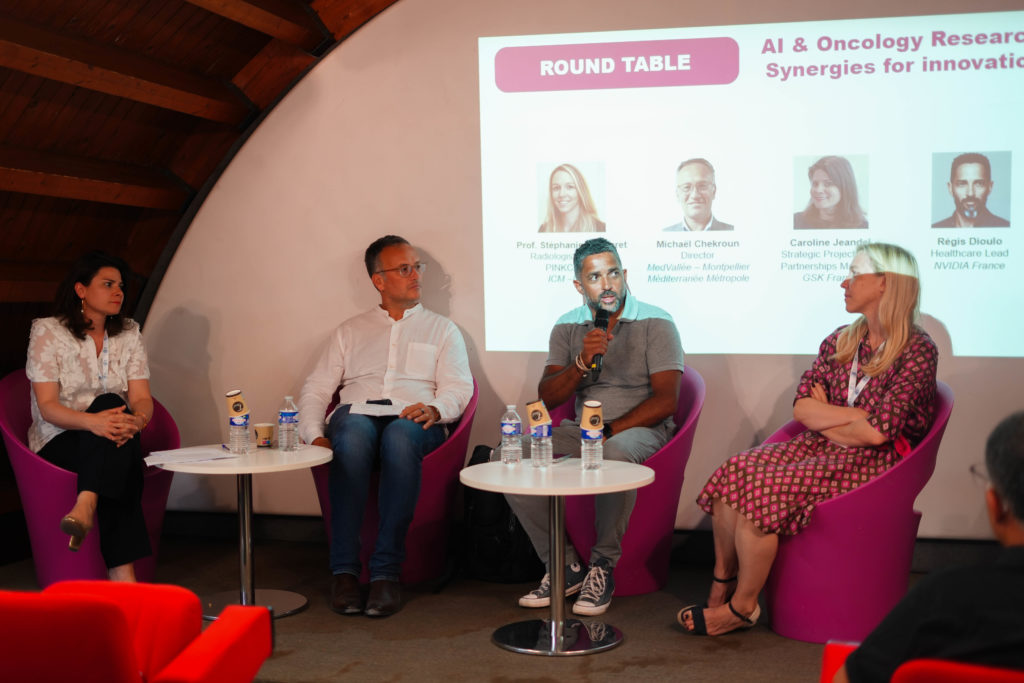
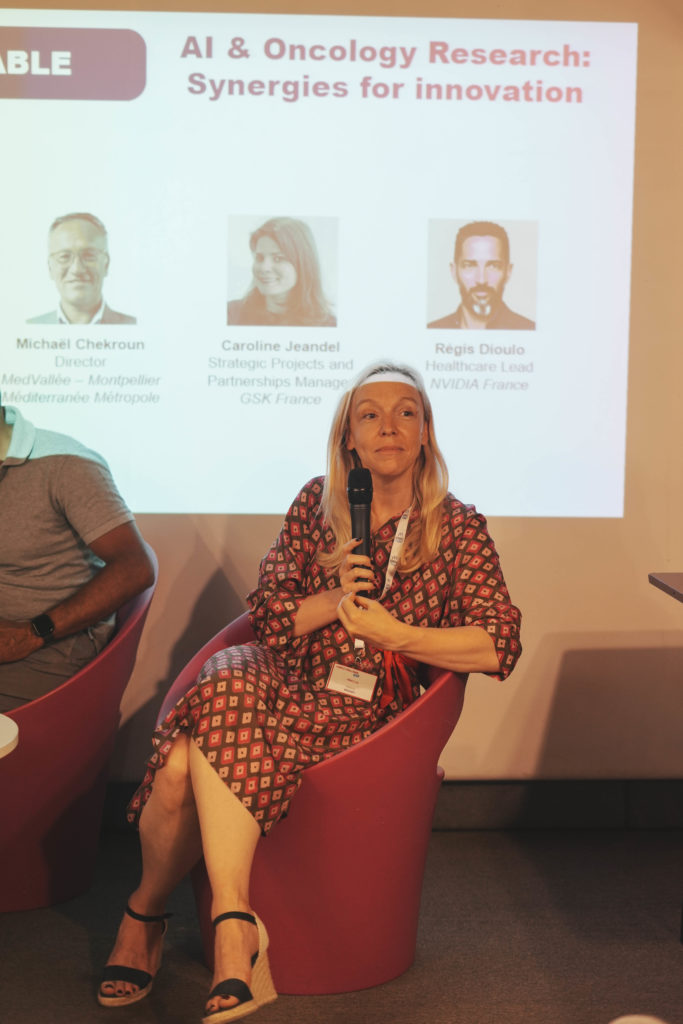
Results of the PINKCC Challenge 2025
The first edition of the PINKCC Challenge showcased an exceptional level of expertise and innovation among the participating teams. Four projects were distinguished by the jury for the quality of their approaches and the performance of their algorithms in ovarian tumor segmentation.
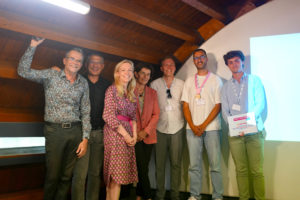
🥇 1st Prize: Team “PasDePontsPasDeChocolat” (École des Ponts: Alexandre Tranié, Charles Prévoteau,
Jeanne MacGregor + University of Namur: Arnaud Bougaham)
Their fine‑tuned Ovseg nnUNet model, adapted to the PINKCC dataset, achieved the best score by leveraging large dynamic batch sizing and optimized patch configurations with smaller focus for robust ovarian tumor segmentation.
🥈 2nd Prize: Team “GGEK” (LIRMM/University of Montpellier: Guillaume Fourret, Guillaume Picaud, Kévin Planolles, Eugênio Dias)
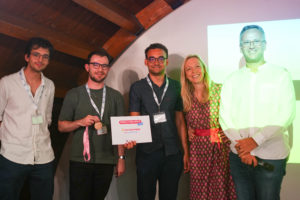
They refined a pretrained model—a Swin UNETR from the SuPreM suite—on the PINKCC data using MONAI’s fine‑tuning toolkit with tailored augmentations.
🥉 3rd Prize: Team “CERIS” (IMT Mines Alès: Gustavo Andrade-Miranda, Abdelhak Imoussaten, Andon Tchechmedjiev, Nicolas Sutton-Charani, Patrice Guyot, Jules Leguy, Baptiste Magnier)
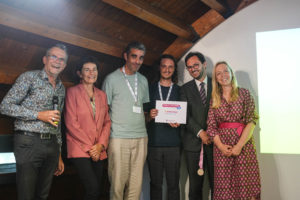
They began with rigorous data quality control (orientation, annotations, error checking, label distributions), then leveraged nnU‑Net across three configurations with three custom preprocessing. Final predictions were ensembled (5 models per variant) and refined via Total Segmentator for robust segmentation.
🏅 4th Prize: Team “Paneristi” (Epitech Montpellier & Stanford University: Lucas Chapuis, Antoine Azar, Cally Lin, Naryeong Kim)
Their two‑stage pipeline started with nnU‑Net for initial segmentation (3D full‑res, extra soft‑tissue channel, 5‑model ensemble), then applied a CorrectionNet enhanced with radiomics features (pyradiomics + SHAP‑guided feature selection). Post‑processing included ROI extraction with safety margins and sliding‑window inference for robust outputs.
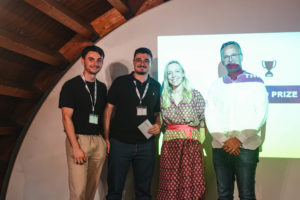
Partners of the PINKCC Challenge
The PINKCC Challenge 2025 is much more than a competition; it embodies the international influence of SIRIC Montpellier Cancer. With the support of MedVallée (Montpellier Méditerranée Métropole), this initiative demonstrates the ability of our ecosystem of excellence in cancer research to innovate, enhance local expertise, and attract top talent to the region.
Strategic partners from industrial, academic, and institutional sectors have come together to ensure the success of this first edition, including:
- GSK France, the pharmaceutical company,
- Scaleway, a European cloud provider and subsidiary of the Iliad Group,
- Crédit Agricole du Languedoc,
- Montpellier Méditerranée Métropole, through the MedVallée initiative.
Thank you to all our partners for making the 2025 edition a success!
